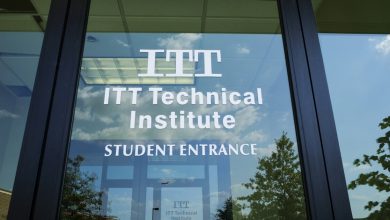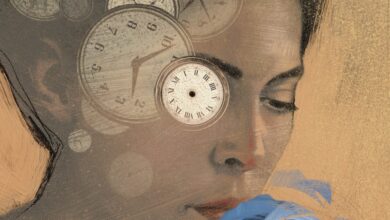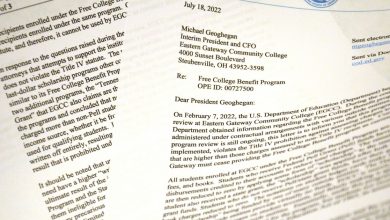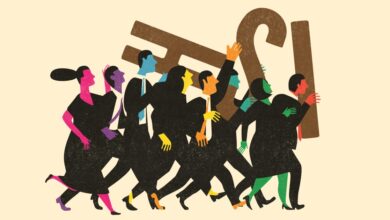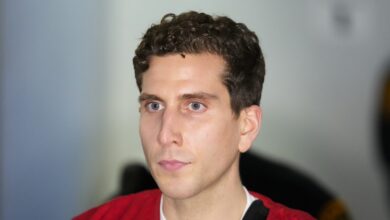3 U. of Florida Experts Couldn’t Testify on a Voting-Rights Law. This Professor Had No Trouble.
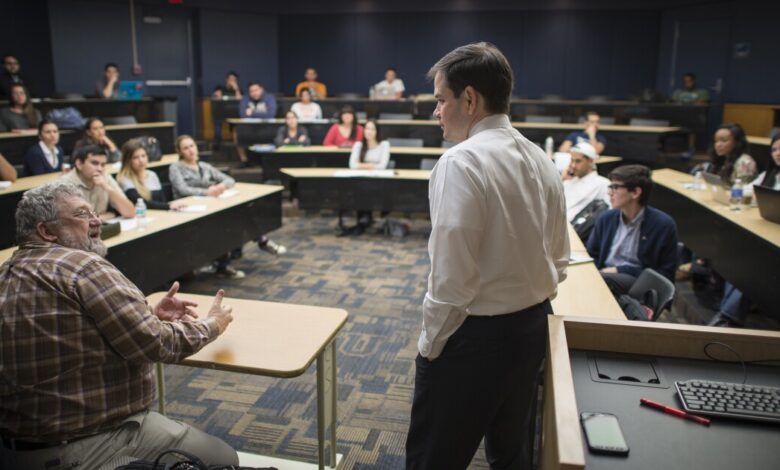
[ad_1]
The University of Florida is embroiled in controversy this week following revelations that, in at least four cases, it denied professors’ requests to testify in lawsuits that challenged policy set by Gov. Ron DeSantis and the GOP-controlled Florida Legislature.
University leaders said offering testimony as part of a legal challenge to the state poses a conflict for the flagship institution because it is an extension of the state government. One such denial came in response to three professors’ bids to testify in a suit against a new Florida law that makes it harder for residents to vote. For now, the three professors have been sidelined.
But one public-college professor in Florida had no trouble getting a green light to testify on behalf of parties defending Florida’s controversial voting law.
Court records show that the Republican National Committee and the National Republican Senatorial Committee hired a Florida International University professor, Dario Moreno, as an “expert witness” in League of Women Voters of Florida v. Lee, which challenges the restrictive voting law.
At Florida International, a public university, administrators signed off on Moreno’s outside-employment request with little fanfare. The “Outside Activity/Conflict of Interest Form” includes no comments or feedback to Moreno — just a couple of sign-offs by his superiors. Though the filled-out form does not specify the lawsuit, it names a law firm — Shutts & Bowen — listed on the same court documents that name Moreno as an expert witness for the Republican committees.
Florida International’s conflict-of-interest policy is similar, though not identical, to the University of Florida’s. It forbids professors to take outside jobs that could interfere with their primary academic duties, affect the university’s integrity, or create a conflict “between the private interests of the employee and the public interests of the University, the Board of Governors, and/or the State of Florida.”
Moreno, who could not be reached for comment, is an associate professor in the politics and international-relations department. He has previously been paid by the Florida Legislature to defend Republican-drawn redistricting maps in court. According to a 2015 article in the Tampa Bay Times, Moreno had been “hired by the Florida Legislature to be an expert witness in defense of every GOP-drawn redistricting map since 1994.”
Several years ago, Moreno taught a politics class at the university with U.S. Sen. Marco Rubio, a Republican, who is a longtime friend, according to Politico.
Neither of the Republican committees responded to Chronicle requests for comment about Moreno’s “expert witness” role in the voting case.
The two Republican groups intervened in the voting-rights lawsuit in support of the state in hopes of preserving the new rules, which restrict voting by mail and reduce the availability of ballot-drop boxes. The new law was enacted after an election in which Democrats outvoted Republicans by mail.
A ‘Fundamental Violation’
The three University of Florida professors applied for similar approval to testify in a different case — Florida Rising Together et al. v. Lee et al. — that challenges the same law, but were rejected. It’s not clear how the three requests violated the university’s conflict-of-interest policy, The Chronicle has reported. (The faculty members have demanded that the university reverse its decision.)
The unusual muzzling of the professors became public last week. Since then, other University of Florida faculty members have come forward to say that they, too, had been subject to similar bans. A pediatrician told The Chronicle that university administrators had denied him a chance to testify in a court case filed by parents who support mask mandates in schools. That pediatrician, Jeffrey L. Goldhagen, called the administration’s decision a “fundamental violation” of the role of public universities in society.
Moreno’s hiring as an expert witness illustrates the implications of a policy in which public-college professors can offer paid testimony only on the side of the state. “The motives have been unmasked,” said Richard Chait, a professor emeritus of higher education at the Harvard Graduate School of Education. Chait said the situation suggests that only expert faculty members who agree with the state are welcome to share their opinions in court and be paid for it.
Faculty members who dare to challenge the status quo are not.
But Chait said that professors, while technically state employees, also serve the public as a whole. And the public has a right to know when a state law or state policy is wrong.
“If you’re an expert and you think something is amiss,” he said, “it is in the public interest for that point of view or that information to have public exposure, especially at a public university.”
In the face of nationwide criticism, the University of Florida said this week that the three faculty members could testify in the voting-right case, but only if they were not paid.
“If the professors wish to testify pro bono, on their own time without using university resources, they are free to do so,” the university’s president and provost said in a joint statement.
Lawyers for the three professors countered that the “pro bono” option had never been offered to the faculty members initially, and Goldhagen said his request had been denied even though he wouldn’t have been paid.
When Moreno takes the witness stand for the Republican committees, he will be paid, university records show. Moreno’s outside-employment form doesn’t disclose his hourly rate, but it states he will be working with the Shutts & Bowen law firm a few hours each week, on nights and weekends. The work will continue for more than six months.
Total hours of compensation: 112.
[ad_2]
Source link


